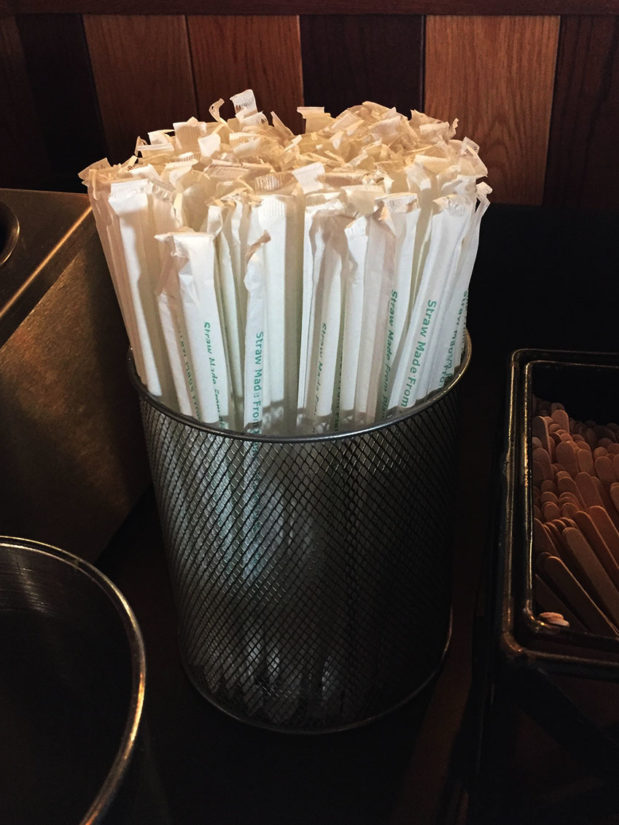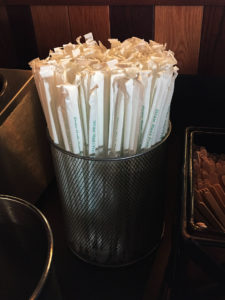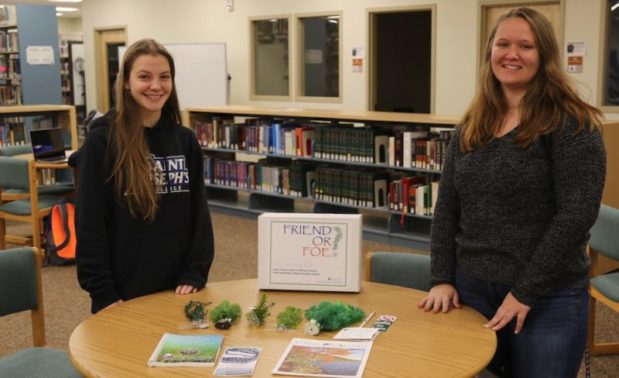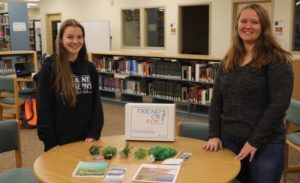Since its founding, Saint Joseph’s College of Maine has been committed to education as a means for both personal and social transformation. As an institution sponsored by the Sisters of Mercy, we seek to educate our students through classes and experiences that bring them face-to-face with a planet and people in need. A recent example of this type of education is reflected in Saint Joseph’s recent addition: The Pollinator Garden Project.
The garden began as an idea from SJC’s Community and Sustainability Engaged (CASE) Scholars when they researched the decline of pollinators in Maine for their presentation at the Terra Matters Climate Summit, held at USM in 2018. With donations, multiple grants, a group of fourth graders from Riverton School in Portland, and a beehive of campus support, the Pollinator Garden is now a part of our College campus.
Student and CASE Scholar Caleb Gravel was a key member of a large, interdepartmental team working on The Pollinator Garden Project on campus. A senior majoring in environmental science and double minoring in biology and sustainability studies, Caleb described why he cares about this project, “I’m passionate about making a spot, a safe space to conserve a species. I want to pursue conservation biology and help provide species with safe living spaces. I want to ensure that species are not going extinct.”
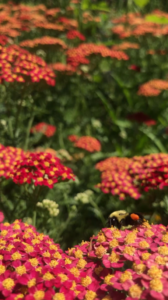
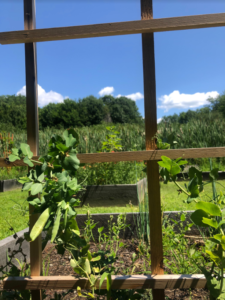
Photo credit: SJC Staff Maya Atlas
Saint Joseph’s College is the 73rd educational institution in the nation and the first in Maine to be certified as one of the affiliates of the Bee Campus USA program. This is a certification program that seeks to stabilize campus landscapes as ideal habitats for pollinators such as bees, hummingbirds, butterflies, and more. The garden is tended by Professor Emeritus and Master Gardener Sue Kelly and campus community volunteers. If the project proceeds as planned, local seniors from the community will also have an opportunity to engage with the garden over the summer.
The Pollinator Garden is not only a beautiful place to stop and smell the roses (or in this case, the milkweed), it’s a place for the SJC campus and larger community to engage with the natural environment in an educational and informative way. As this “living laboratory” continues to develop, it will serve as a sustainability makerspace for research, innovation, and a beautiful place to visit to learn about the vital role of pollinators in our local food systems.
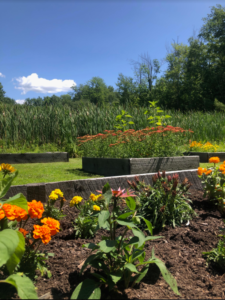
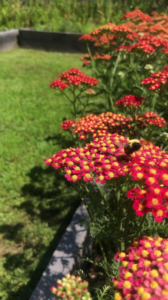
Photo credit: SJC Staff Maya Atlas
To see more about Caleb Gravel’s role in making the Pollinator Garden a reality, please visit The Pollinator Garden Project article in Saint Joseph’s College Magazine.

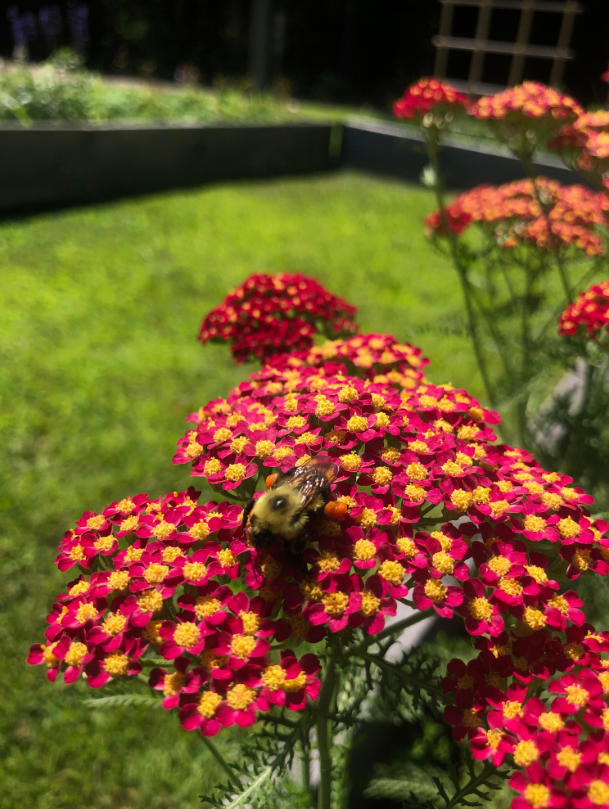
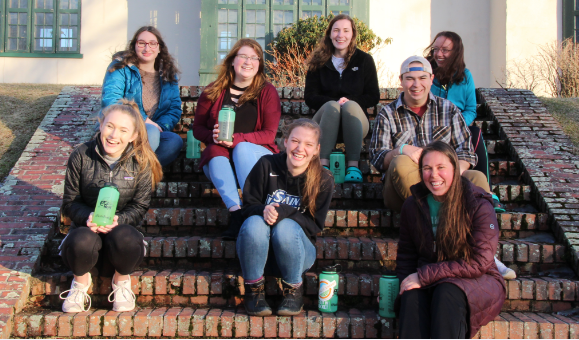
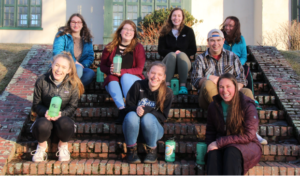


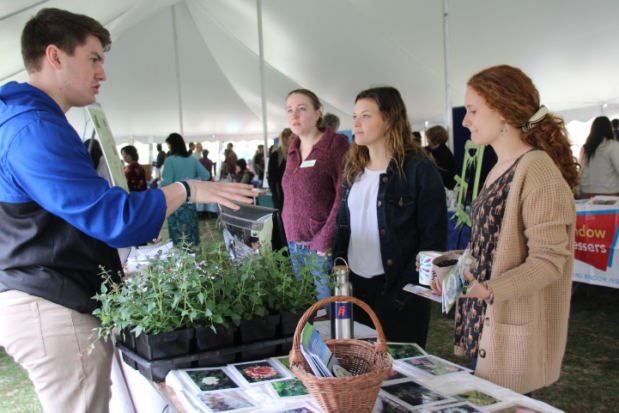
 Live performance by the Burnurwurbskek Singers
Live performance by the Burnurwurbskek Singers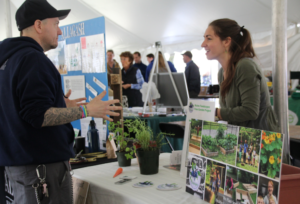 Tom Halstead from Allagash Brewing Co and Ali Mediate of Maine FoodScapes
Tom Halstead from Allagash Brewing Co and Ali Mediate of Maine FoodScapes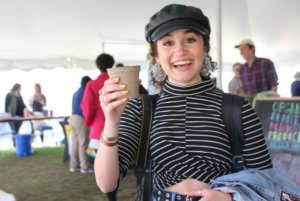 SJC student with her new plant
SJC student with her new plant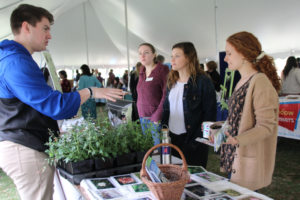 Center for Sustainable Communities intern discussing the pollinator garden with SJC students
Center for Sustainable Communities intern discussing the pollinator garden with SJC students SJC students with bunnies from November’s Harvest
SJC students with bunnies from November’s Harvest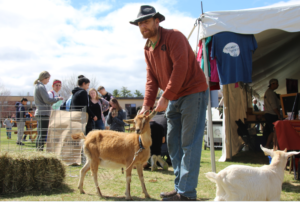 Farmer Myke and his babies
Farmer Myke and his babies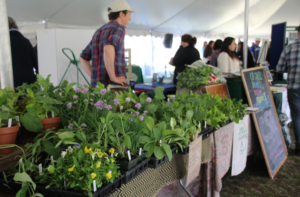 Plants from Old Wells Farm
Plants from Old Wells Farm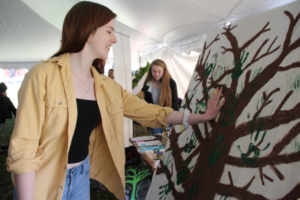 SJC student adds her handprint to the Eco Reps mural
SJC student adds her handprint to the Eco Reps mural
 On Wednesday, April 24 at 6pm in the Auditorium, the CH245 Environmental Chemistry class, in conjunction with the Natural Resources Council of Maine, Lakes Environmental Association, Bridgton Books and the Green Store are hosting a screening of Bag It! The class will present results from a study of microplastics in the Presumpscot River. There will be door prizes!
On Wednesday, April 24 at 6pm in the Auditorium, the CH245 Environmental Chemistry class, in conjunction with the Natural Resources Council of Maine, Lakes Environmental Association, Bridgton Books and the Green Store are hosting a screening of Bag It! The class will present results from a study of microplastics in the Presumpscot River. There will be door prizes!


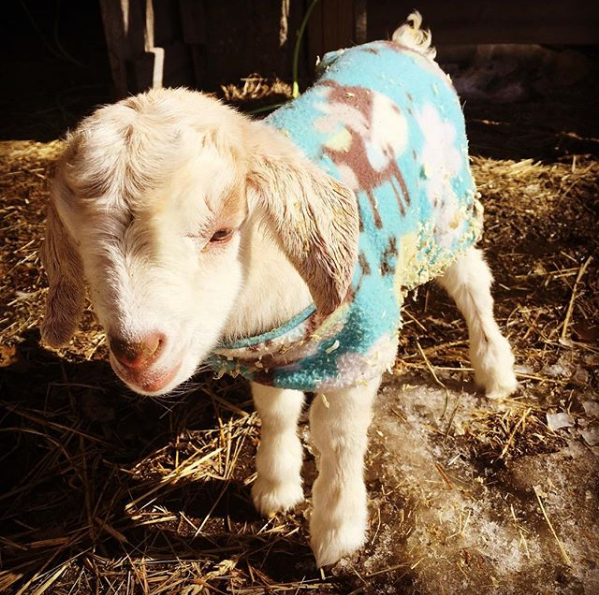
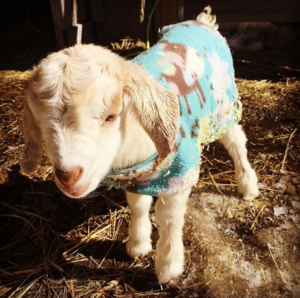



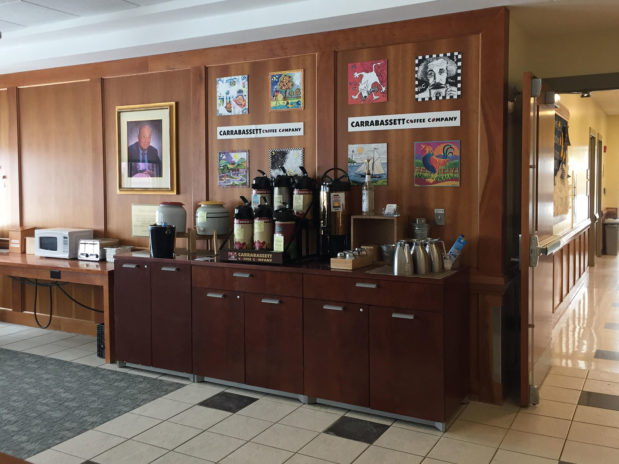
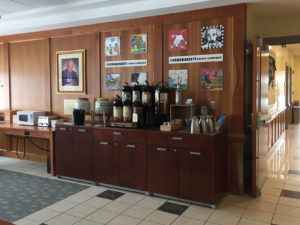 In an effort to reduce single-use cups, Brewed Awakenings (the College’s coffee station located in Alfond Hall) now offers free coffee to students and employees who bring their own reusable cups. Faculty and staff members are also offered free coffee in Pearson’s Dining Hall if they bring a reusable cup. This initiative aims at reducing the number of individual coffee-makers operating in offices across campus and efforts are underway to eliminate all K-Cup Pods, which are not only expensive but are extremely harmful to the environment. By offering coffee in communal spaces, students and colleagues are encouraged to step away from their desks for a short break, stretch, and fuel up!
In an effort to reduce single-use cups, Brewed Awakenings (the College’s coffee station located in Alfond Hall) now offers free coffee to students and employees who bring their own reusable cups. Faculty and staff members are also offered free coffee in Pearson’s Dining Hall if they bring a reusable cup. This initiative aims at reducing the number of individual coffee-makers operating in offices across campus and efforts are underway to eliminate all K-Cup Pods, which are not only expensive but are extremely harmful to the environment. By offering coffee in communal spaces, students and colleagues are encouraged to step away from their desks for a short break, stretch, and fuel up! 